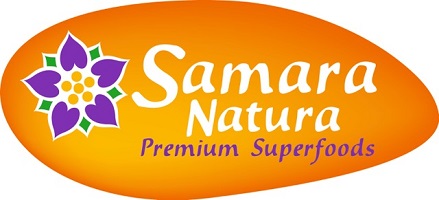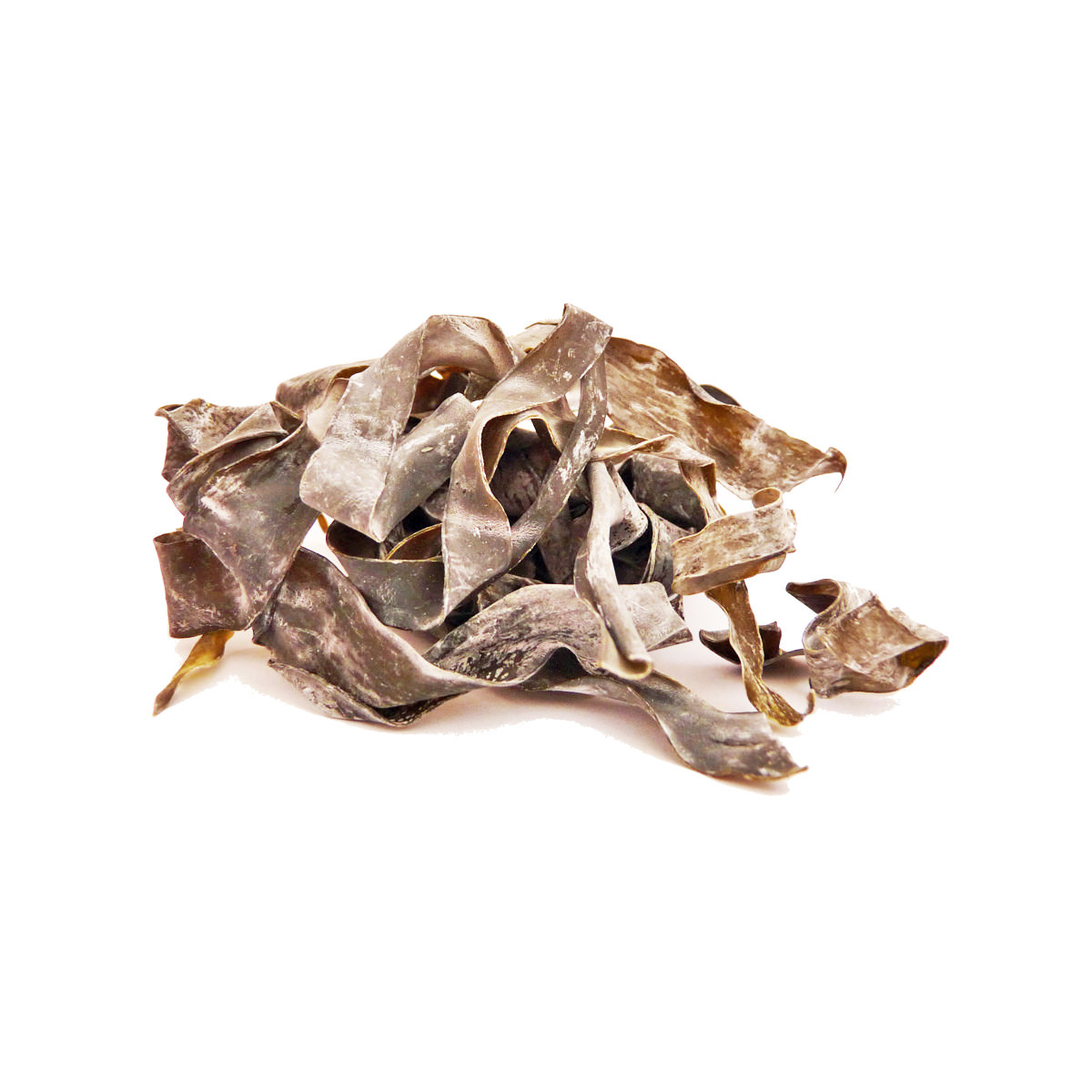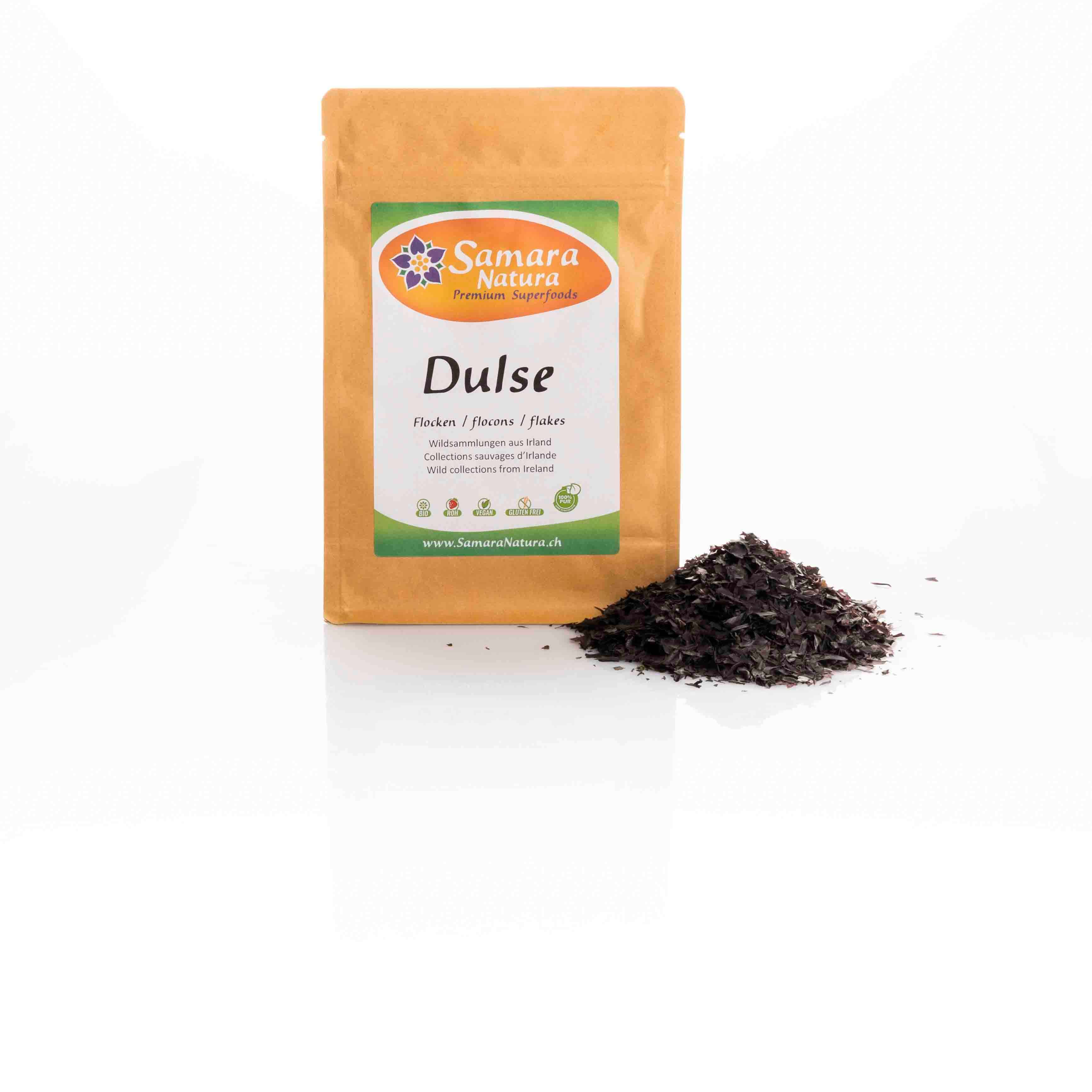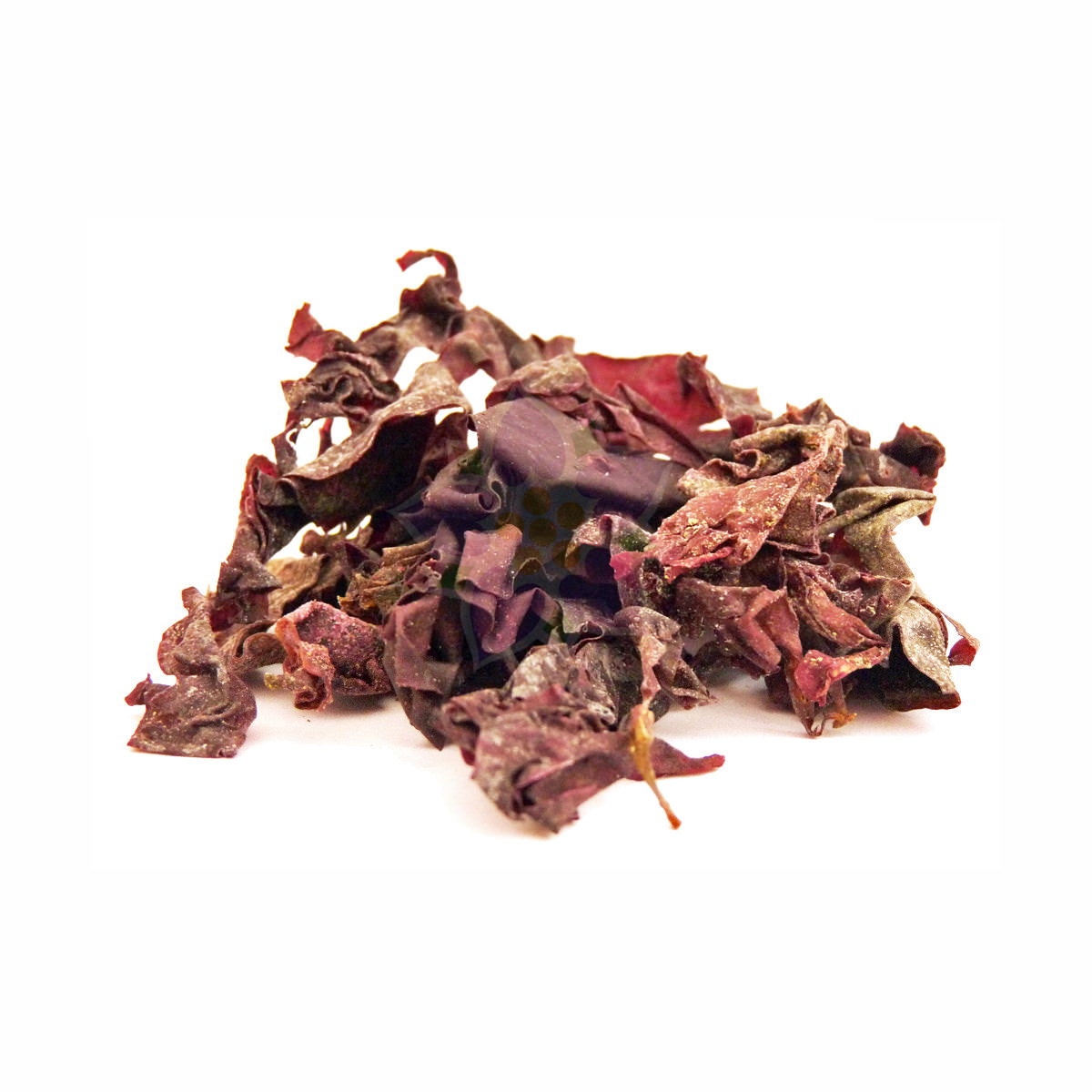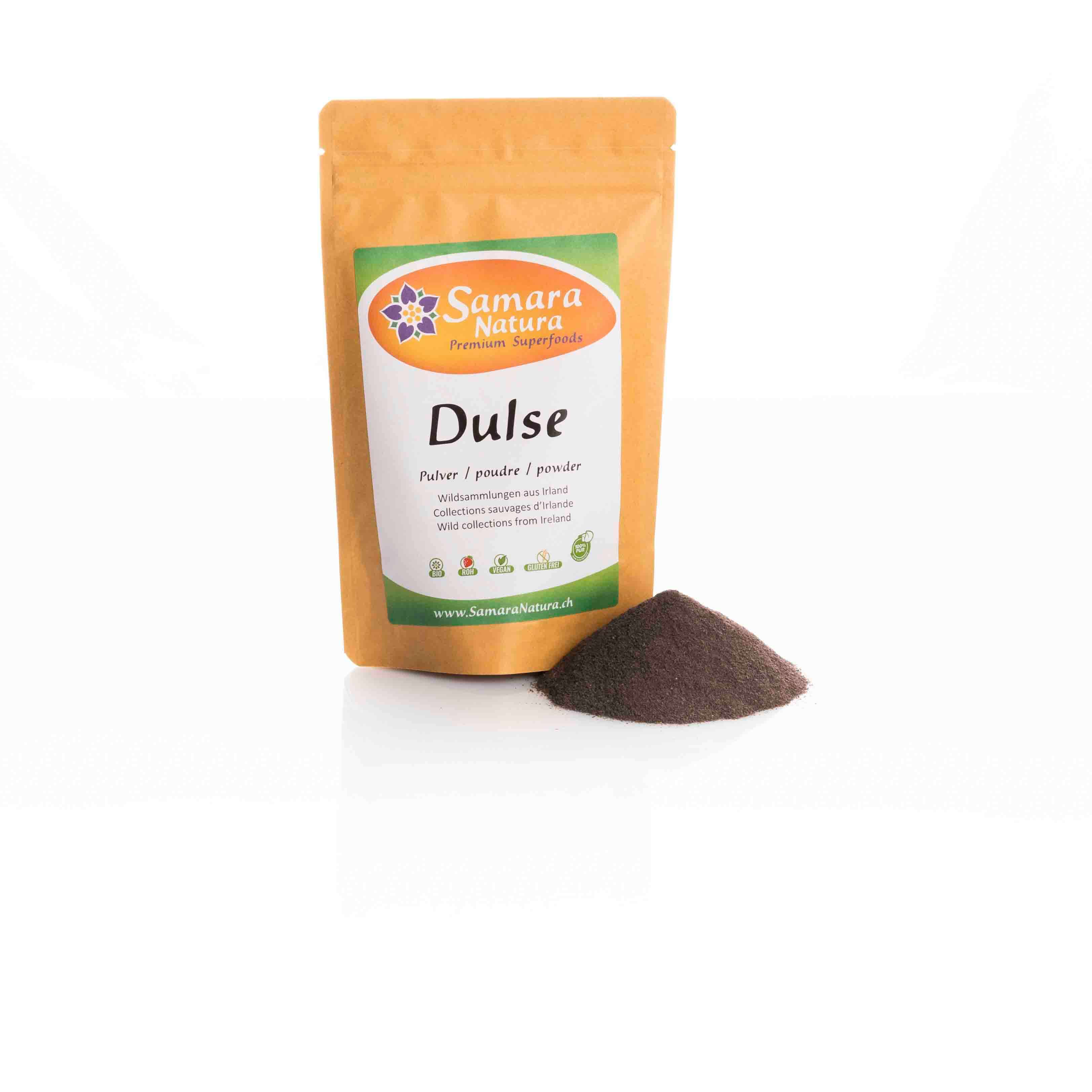Atlantic Kombu (Laminaria Digitata)
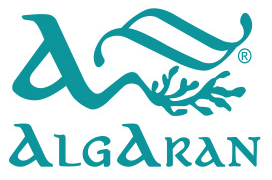
CHF 8.30*
Available again soon, see product description for details
Product information "Atlantic Kombu (Laminaria Digitata)"
Atlantic kombu (finger kelp)
Caution: Due to its high natural iodine content, Atlantic kumbo is not suitable for consumption. Consmetic applications such as face masks are possible.
Kombu or finger kelp (Laminaria digitata) belongs to the genus of large brown algae (kelp) and grows in dense stands in shallow waters in calm, sheltered bays.
Atlantic kombu is a thinner and more delicate version of Japanese kombu and can be used in exactly the same way - boiled in soups, fried until crispy or steamed and marinated. Kombu is ideal for all bouillons/stocks, where it improves the flavour and nutrient content. In particular, it is used for cooking beans, as it makes the beans more digestible and softer and reduces the cooking time.
Kombu is particularly rich in calcium, potassium and magnesium and is also rich in B vitamins. It also contains mannitol, a sugar alcohol, which gives it a slightly sweet flavour and plenty of glutamic acid, an essential amino acid.
Why we love kombu
Kombu is a wonderful addition to all cooked preparations, especially beans or pulses and soups, by adding a few strips. Bean dishes in particular cook more quickly and are easier to digest.
SamaraNatura Kombu
Our sea vegetables are collected wild in the north-west of Ireland (Donegal) and harvested by hand. With the help of a cold air drying system, the seaweed is dried very gently and in raw food quality.
Usage
To enjoy kombu straight from the bag, tear it into strips. A salty, chewy snack that becomes sweeter in flavour over time.
For cooking in general, it is best to soak kombu in water for 10 minutes and then simmer it with the dish for 40 minutes.
As an alternative to conventional bouillons: one 8 cm long piece per litre of liquid is simmered for at least 10 minutes. Optionally, remove and cut up and add again later or simmer for longer for more flavour.
Salads: Soak kombu in water for an hour (or longer), then marinate (for 1-24 hours) or fry in oil. Chop into bite-sized pieces and mix into the salad. The soaking water is nutritious and should also be used, e.g. as a dressing.
Beans: Natural glutamates in kombu enhance the flavour and soften the beans. Boil a 5 cm piece of kombu with the beans for at least 10 minutes, for a thick and rich bean broth until the beans are soft. No need to add salt.
Serve as a snack or garnish: Tear or chop the kelp/kombu into bite-sized pieces. Roast at 150°C for 3-5 minutes or fry in a frying pan until crispy. Sprinkle these kelp chips over salads, cereals and pasta or enjoy them straight away as a crispy snack.
Sea vegetables in general
Sea vegetables are wild plants of the ocean that grow on coral reefs and rocky coasts, usually in salt water. Sea vegetables are enjoyed in many coastal regions around the world and enrich most dishes with flavour and nutrients.
Sea vegetables contain almost all the minerals and trace elements that the sea has to offer! In general, sea vegetables are an excellent source of calcium, iodine and sodium, a very good source of folic acid and magnesium and a good source of iron, potassium, vitamin B2 and B5. They also contain vitamin K and trace elements such as selenium and chromium, which are often lacking in land vegetables due to depleted soils.
When consumed regularly and over a long period of time, sea vegetables are said to help regulate metabolism and energy levels, stimulate the immune system, promote regular digestion, purify the blood and support the endocrine glands - especially the thyroid gland.
Sea vegetables are an ideal substitute for salt in the diet.
Login
